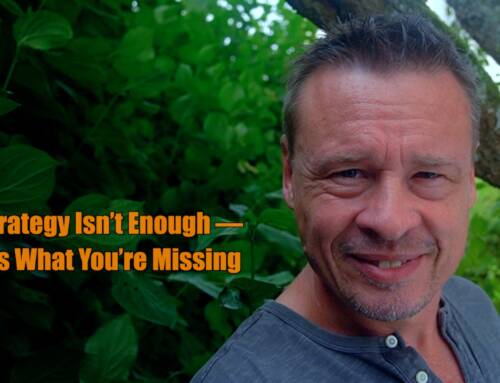You have to provide tangible proof for it
The use of the word relevant is mostly a meaningless filler or even a nuisance in development cooperation communications. In many cases, it’s even bad practice because authors frequently fail to demonstrate why it actually is that something is supposedly relevant to the point discussed.
To me as an editor, the word relevant comes with an orange light. I always try to take it out. It seems to have this tendency to show up in lieu of actually having any relevance, not just someone having forgotten to prove it. Therefore one is inclined to get the impression there is no relevance when the term shows up.
Clearly, there are instances where it makes perfect sense to use the word. But to steer clear of this possible negative connotation, I try to edit it out and go back to the author on this point. This can entail a discussion deeper than one on the appropriate choice of words.
Let’s have a closer look.
In development cooperation communications, it seems to me the term often comes into play when projects want to make sure that others out there start to understand that a partícular issue should be on their radar or that it should really be important to them as well.
Fair enough. They fear irrelevance on the side of their target group. So to make sure that doesn’t happen, they say it out loud: “It’s relevant!”. Even when you have information to back that up and you do provide it, it’s still a tactical mistake, which can even be detrimental to your cause.
Take people to the threshold of their conclusion
From my point of view, you should always at least try and leave it up to the readers to draw their conclusions to the arguments you have presented to them. What is relevant to them is their call.
It’s the author’s job to move the readers close to their conclusions by demonstrating the relevance, not to claim it by writing the word. It depends a bit on what kind of aim you follow with your article but I guess any good author tries to argue in a way that makes following his or her own arguments look like a logical next step. That’s why it’s called a compelling argument.
However, if you really think of it, deciding on relevance is probably more of a judgment than reaching a guided conclusion on logical grounds. Which makes it all the more important to finetune your approach.
You might not like it but in reality, people tend to judge much more than they arrive at logical conclusions.
And since we’re at it, facts don’t change our minds as much as we believe. As Elizabeth Kolbert argued in a brilliant article in The New Yorker four years ago and which I share on LinkedIn every year, there are new discoveries on the human mind showing the limitations of reason. So excuse the double pun, compared to facts, feelings are much more relevant than we think.
Not proving your point can be detrimental to your communication and your project
I believe that people with a certain capacity and attention level tend to realize when they are presented with an argument without adequate proof, at least subconsciously.
When they think about it, their impression can lead them to different ideas: a) it’s just a badly prepared piece of communication, or b) there’s no proof given because there is none, and c) — the worst — there’s some kind of cover up here.
So what’re you going to do?
Always clarify and make brilliant arguments for your points including evidence. If you don’t have anything substantial, refer to other people, ideally with some public standing on the point, or tell an anecdote. When the source is not that reliable, then don’t make it look otherwise. It’s still better than just claiming.
Then feed that judgmental animal in people with tangible, pertinent examples. It doesn’t feast on dry logic facts. Even scientists have been found to be much less fact-oriented than what we all believe — certainly don’t just simply claim that something is relevant.
By the way, the same goes for “important”, “successful” or “significant” and many other terms. In most cases, their use is superfluous at best. Or would you mention something that is irrelevant, insignificant, or not important in the first place?
Don’t get me wrong here. It’s not actually about the terms themselves. They are just the ones typically used in development cooperation communications when there’s a void to be filled.
Obviously, there are many instances where these kinds of notions are spot on. Significance, for instance, is a clearly defined term in statistics. It’s absolutely needed there. The trouble starts though when it permeates from scientific writing into scientific communications and from there into channels with broader targeting.
As touched on, to me, terms like relevant are actually signals to look out for bad communication and often they even signify cover-ups, meaning the writer might actually not only want to use a shortcut but actually lacks proof of his or her claim. Clumsy cover-ups, they are. Give it a try. Whenever you see words like that, have a look for the evidence in the text.
In filmmaking, they say show, don’t tell! The medium demands the use of pictures to tell the story. Similar is true for your written or spoken comms.
To complicated? Let me put it this way.
You have some new people from the office over at your house. You won’t know their tastes and you surely have no foresight what their political clout in the office will be in the future or any first-hand indication of their real character. You offer them your best espresso and you wait for them to say it’s great. I mean you could tell them it’s great but it’s much better not to. Because first of all, you don’t have to, you have the proof. And if you tell them and they don’t like it all, it leaves both of you in a bit of a predicament. You now have told someone how to feel about something and it turned out they actually didn’t agree with it. Even though they might tell you the opposite, doesn’t make any difference to my point here.
So this leads you to the possible impact or the chain of possible impacts as we just saw. But I don’t want to go into all sorts of directions here. Mine is a simple point.
What is the straightforward and likely impact?
Well, certainly not that you convinced anyone by claiming that something is relevant — at least not anyone that would be relevant (excuse the pun AGAIN) in terms of your usual bunch of target groups in development work. I guess we all agree they cannot be sold like that.
Telling someone that your workshop was relevant, important, successful or even great without explaining to them against which benchmark or expectation you measured that claimed result shifts your meaningful project communications into the realm of consumer advertisement (“Our detergent is the best”) — something despised in development cooperation because the fields swarms with people who want to do good and salesy marketing is on the bottom of their list with alternative jobs.
Let’s face it if you’re communicating like that, you’re not making a bad argument, you’re not making one at all. And if you’re making judgmental claims on events still to come in the future, you definitely got out of bounds of a communications approach that a scientifically-based project has likely set for itself.





Leave A Comment